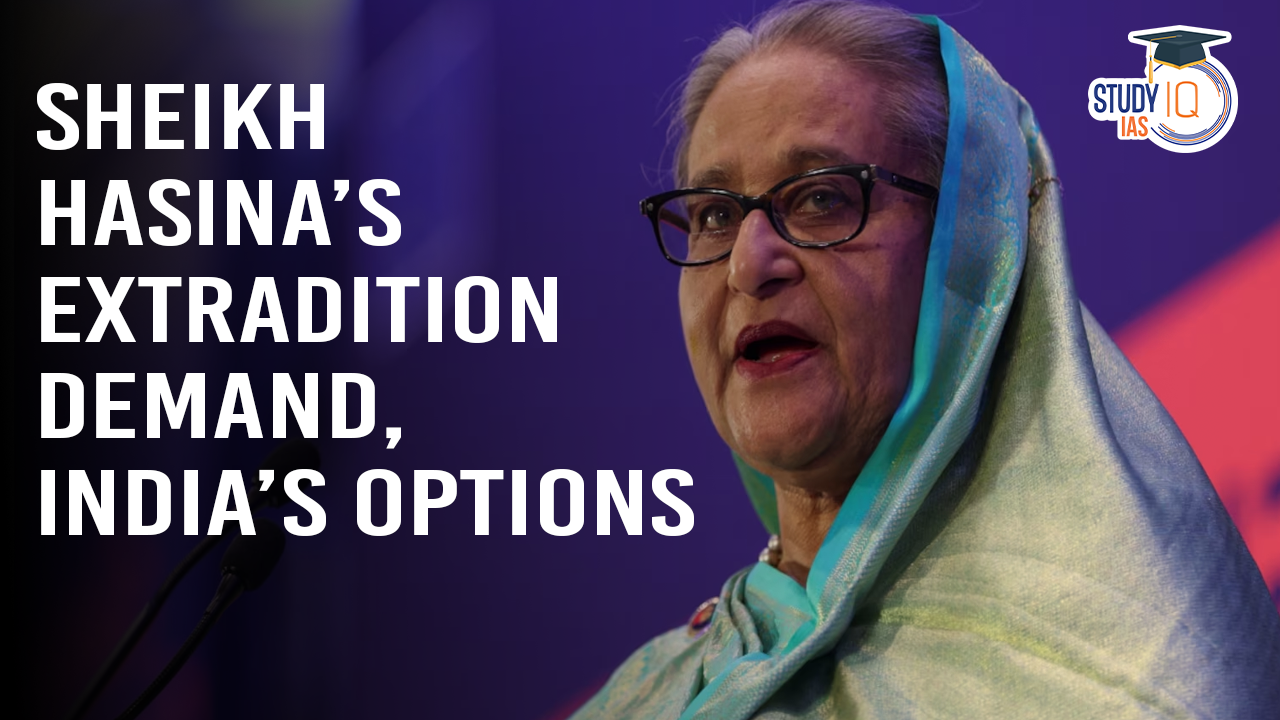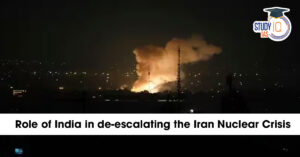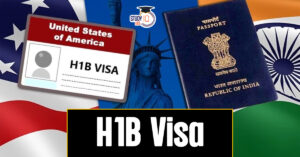Table of Contents
Bangladesh has initiated domestic proceedings for Sheikh Hasina’s alleged crimes including state-sponsored violence and killings during her regime. Bangladesh is a party to the Rome Statute of the ICC, which could potentially involve the ICC if there are concerns about fair trial rights
Legal Framework for Extradition
- Bilateral Extradition Treaty (2013): A treaty between India and Bangladesh provides the legal basis for extradition requests.
- Outlines the terms and conditions under which an individual may be extradited between the two countries.
- Indian Extradition Act, 1962: Governs the process of extradition in India for nationals and non-nationals.
- Establishes procedural and substantive requirements for extradition, including the defences a requested state can use to deny extradition.
- Articles 20 and 21 of the Indian Constitution: Protect even non-citizens within Indian territory.
- Article 21 ensures the right to life and personal liberty, which could be invoked to challenge extradition in cases involving risks of torture, unfair trial, or inhumane treatment.
- In cases like the National Human Rights Commission vs the State Of Arunachal Pradesh (1996), it was established that even non-citizens can claim rights under Indian law.
- Customary International Law – Principle of Aut Dedere Aut Judicare: Obligates states to either extradite or prosecute individuals accused of grave international crimes (e.g., genocide, war crimes, crimes against humanity).
- Not legally binding for India in the absence of direct treaty obligations.
- Section 339 B of the Code of Criminal Procedure, 1898 (Bangladesh): Allows trials in absentia, which could be relevant if Sheikh Hasina is not extradited but participates remotely.
Role of the ICC and Complementary Jurisdiction
- International Criminal Court (ICC): The ICC is a court of last resort that prosecutes individuals for grave international crimes, such as genocide, war crimes, and crimes against humanity.
- It supplements, rather than supplants, national jurisdictions by intervening only when a state is unwilling or unable to prosecute such crimes.
- Article 17: States that the ICC will not exercise jurisdiction if the domestic legal system is actively and effectively investigating or prosecuting the case.
- Ensures that national courts have the primary responsibility for conducting trials.
- Potential ICC Intervention Scenarios:
- Article 53: If it appears that the domestic legal process is not independent, impartial, or aimed at justice, the ICC may intervene.
- Article 15: Allows the ICC Prosecutor to initiate a proprio motu (on their own initiative) preliminary examination to assess whether a case falls within the ICC’s jurisdiction.
- Article 14: A state party (e.g., Bangladesh) can refer a case to the ICC if it believes it cannot fairly or effectively prosecute the case domestically.
Concerns and Recommendations
- Risks of Extradition: Bangladesh’s record of prison conditions and torture raises concerns about Ms. Hasina’s safety.
- Emotional or vengeful actions could damage India-Bangladesh relations and harm regional stability.
- In-House Arrest Proposal: India could consider allowing Hasina to remain under in-house arrest while participating in her trial via video conferencing.
- This approach would:
- Ensure her rights are protected while addressing Bangladesh’s judicial needs.
- Allow Indian authorities to facilitate evidence gathering and cooperation with Bangladeshi agencies.
- This approach would:


 Iran Nuclear Crisis and India’s Role f...
Iran Nuclear Crisis and India’s Role f...
 H1B Visa Program, Beneficiaries, Eligibi...
H1B Visa Program, Beneficiaries, Eligibi...
 Comparison Between India & France's ...
Comparison Between India & France's ...

























